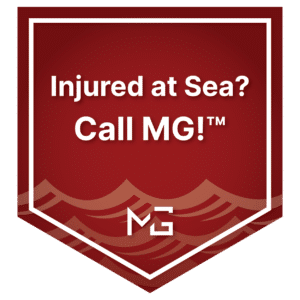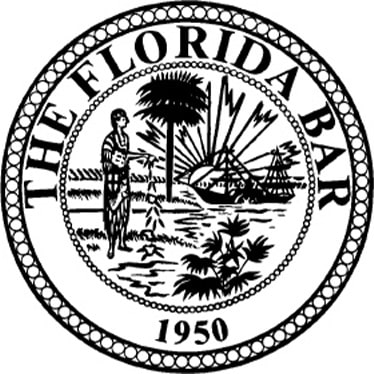
Jet Ski Accident
 Visitors and locals often take advantage of Florida’s warm weather and waters to enjoy the excitement of water sports like boating and jet skiing. Thousands of jet skiers enjoy these pastimes safely, year in and year out. However, there is always a risk of severe and even life-threatening injuries – both to operators and passengers. In fact, personal watercraft accidents are alarmingly common. When these unpleasant scenarios do arise, it is essential to have a jet ski accident lawyer on your side.
Visitors and locals often take advantage of Florida’s warm weather and waters to enjoy the excitement of water sports like boating and jet skiing. Thousands of jet skiers enjoy these pastimes safely, year in and year out. However, there is always a risk of severe and even life-threatening injuries – both to operators and passengers. In fact, personal watercraft accidents are alarmingly common. When these unpleasant scenarios do arise, it is essential to have a jet ski accident lawyer on your side.
- Florida Jet Ski Accident Laws and Statistics
- The Leading Causes of Jet Ski or Personal Watercraft Accidents
- Types of Jet Ski Accident Injuries
- Steps to Follow After a Jet Ski or Personal Watercraft Accident in Florida
- Compensation for Jet Ski Injury
- Benefits of Hiring a Jet Ski Accident Lawyer
- Jet Ski Accident FAQs
- Florida Jet Ski Accident Laws and Statistics
Contact us today for your free & confidential case review. Our team will help you get the compensation that you deserve.
As a popular destination for water sport enthusiasts for much of the year, Florida sees more jet skiing and boating accidents than any other state. According to the Florida Fish and Wildlife Commission, the Sunshine state sees 750 personal watercraft accidents per annum, with between 60 and 70 fatalities. Around half of the accidents involve collisions, and about a third of the cases are caused by machine failure and carelessness. The No. 1 cause of fatal boating accidents in Florida are overboard falls. Of the jet skis that are involved in accidents, just over half are rented, and just less than half are borrowed, indicating that very few of these jet skis are owned by the people operating them at the time. Miami-Dade ranks second among the counties where the most jet ski accidents happen, between Monroe County and Pinellas and Palm Beach.
- As far as the law is concerned, several regulations have been applied to jet skiing in Florida. Some of the most important to remember are:
- Anyone who operates, rides on, or is towed behind a personal watercraft must wear a US Coast Guard approved life jacket.
- No jet ski or similar personal watercraft is permitted to be operated from a half-hour after sunset until a half-hour before sunrise.
- Nobody under the age of 14 is permitted to operate a personal watercraft in Florida.
It is a violation to operate a personal watercraft while under the influence of alcohol or a controlled substance.
The Leading Causes of Jet Ski or Personal Watercraft Accidents
There are three prevalent causes of jet ski or personal watercraft accidents. Sadly, the most common is reckless or careless driving. It is all too common for jet ski riders to travel at excessive speeds, which can very easily result in accidents. Other examples of unsafe jet ski operation include becoming airborne while crossing the wake of another vehicle and attempting to weave through traffic.
Inexperience is the second major cause of jet ski accidents. It is very easy to rent a jet ski. No prior experience is required, and rentals do not come with any detailed safety instructions. Inexperienced riders often attempt risky maneuvers. Unfortunately, these end in accidents all too often.
The third most common cause of jet ski accidents is intoxication. Although it is illegal to drive a jet ski while under the influence, vacationers will tend to take the chance, feeling relaxed and uninhibited. This often leads to serious accidents, just as it does when motorists make the decision to drink and drive.
Types of Jet Ski Accident Injuries
Riding a jet ski is great fun, and because it seems like such a light-hearted and enjoyable activity, jet skiers often forget that it is actually very much like driving a car, as far as the risks are concerned. Speed and traffic congestion, combined with carelessness, can lead to serious injuries and even death. The most common injuries that occur as a result of personal watercraft collisions are:
- Spinal injuries
- Burns
- Lacerations
- Broken or fractured bones
- Amputations
- Whiplash
- Head trauma
Careful driving, together with the use of personal flotation devices (PFDs) and helmets, can help you avoid these injuries, or at least lower their severity.
Steps to Follow After a Jet Ski or Personal Watercraft Accident in Florida
The first priority in any accident is to check that everyone is okay. With jet ski and boat accidents, further injury and even death can still occur after the collision, due to the risk of drowning. Whoever is most able and mobile after the crash should check on everyone else and ensure that they are safe. High-traffic waterways are extremely risky, and everyone should be taken out of harm’s way immediately. Next, you should call for help immediately, whether that means flagging down passing boats or skiers, or calling emergency services if you are able to.
Once you are out of danger, and injuries are being treated, start to gather the information and evidence you need for your insurance claim. These details include the following:
- Names and contact details of boat operators and passengers involved.
- Names and contact details of witnesses.
- Registration or identification numbers of the watercraft involved.
- Photos or videos of the damage, if possible.
- Photos or videos of the accident scene.
- Insurance details of operators.
- Medical reports of all injuries
The accident must then be reported to both the US Coast Guard and the local authorities. Once you have filed the report, you must then notify your insurance company, and contact a personal watercraft lawyer.
Contact us today for your free & confidential case review. Our team will help you get the compensation that you deserve.
Compensation for Jet Ski Injury
When pursuing compensation for a jet ski injury, you should seek a fair settlement that accounts for all the costs and losses you experienced. What constitutes a fair settlement will be different in each case – the total could amount to thousands or even millions of dollars, depending on the specifics of the accident. Generally speaking, your Florida jet ski accident lawyer would build a case to claim for the following damages:
- Medical costs, including doctor’s bills, hospital bills, medication, therapy, and rehabilitation.
- Lost wages, as a result of work you have to miss while you recover from your injuries.
- Property damage, if any of the watercraft involved in the accident belonged to you.
- Pain and suffering – damages relating to how the accident has affected your mental health and wellbeing. This includes mental anguish, emotional trauma, disfigurement, embarrassment and loss of quality of life.
Benefits of Hiring a Jet Ski Accident Lawyer
Jet ski accidents are usually more complex than other personal injury incidents, and are often hotly contested. More often than not, insurance companies and operators will blame a rider for their injuries. In cases where two or more watercraft are involved, the various drivers and operators involved will all insist on their own version of events and place the blame on others. Many defendants will do their best to get jet ski riders to accept a settlement that is less than they deserve. By working with a jet ski accident lawyer, you will enlist the help of a legal professional who completely understands jet ski accidents and their intricacies, having the ability to cut through the conflicting claims, place the liability where it belongs, and fight for a just settlement.
If you have been involved in a personal watercraft accident, book a consultation with a jet ski accident lawyer at Mausner Graham Injury Law PLLC. We are a boutique law firm located in Miami, FL, and we are focused on cases involving personal injury, wrongful death, road accidents, maritime accidents, medical malpractice and premises liability. Contact us for more information.
Last updated Tuesday, July 16th, 2024











